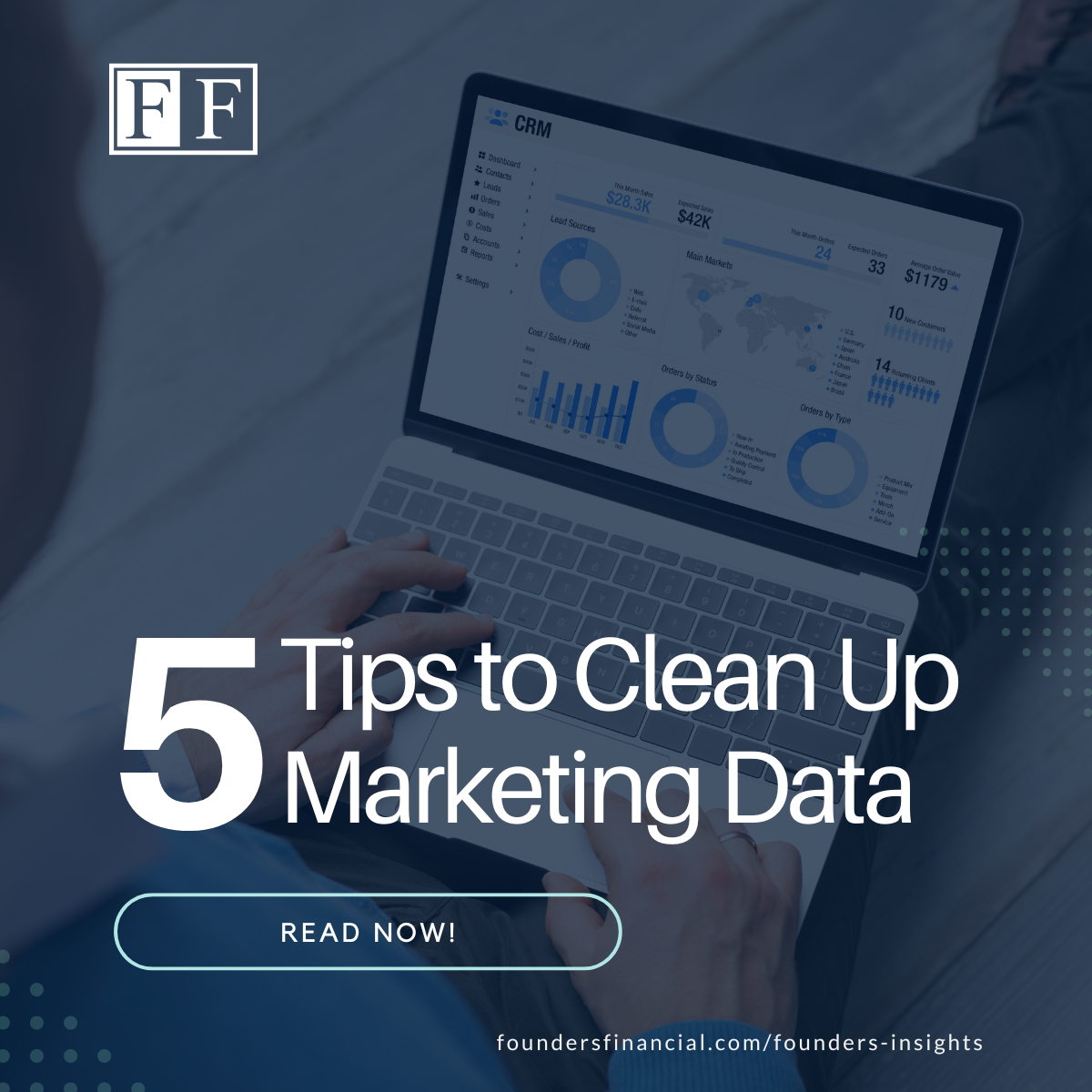Fall and spring cleaning isn’t just for your home anymore. The data we live with also needs a bit of sprucing up too!
In today’s data-driven world, maintaining clean and accurate data in your Customer Relationship Management (CRM) system is crucial for the success of your marketing efforts. Clean data ensures that your marketing campaigns are targeted, personalized, and effective, leading to higher engagement, better conversion rates, and frankly just more personalized and tailored messaging.
Here are some key strategies to keep your CRM data clean.
Strategies for Keeping Your CRM Data Clean
-
Conduct Regular Data Audits 🔎
Conduct regular audits to identify and correct inaccuracies, duplicates, and outdated information. This helps maintain the integrity of your data and ensures that your marketing efforts are based on accurate information. Make it part of your standard operating procedures to do at least twice per year.
-
Standardize Data Entry 💻
Implement standardized data entry procedures to ensure consistency. This includes using predefined formats for names, addresses, and other critical fields. Stay relentlessly consistent!
-
Automate Data Cleaning 🧹
Utilize automated tools and software to clean your data. These tools can help identify and merge duplicate records, validate email addresses, and update outdated information.
-
Train Your Team on Good Data Hygiene 🪥
Ensure that your team is well-trained in data entry best practices. Regular training sessions can help prevent common data entry errors and promote a culture of data accuracy. It might sound boring in the here and now but long-term everyone will be happy with a clean and organized system of record!
-
Use Data Validation Tools ⚒️
Implement data validation tools that can check for errors in real-time as data is entered into the CRM. This helps catch mistakes early and will help you maintain data quality.
The Growing Importance of First-Party Data
As privacy regulations tighten, and third-party cookies become less reliable, first-party data is becoming a critical asset for marketers. First-party data is information collected directly from your prospects and clients through interactions on your website, social media, and other owned channels.
Here’s why it’s becoming more important:
-
Privacy Compliance
First-party data is collected with the consent of your clients, making it compliant with privacy regulations in the U.S., such as CCPA, and even international standards from GDPR. This reduces the risk of legal issues and builds trust with your audience.
-
Accuracy and Relevance
First-party data is highly accurate and relevant because it comes directly from your clients. This allows for more precise targeting and personalization in your marketing campaigns.
-
Ownership and Control
Unlike third-party data, which can be affected by changes in external policies and technologies, first-party data is owned and controlled by your organization. This gives you greater flexibility and reliability in your marketing efforts.
-
Enhanced Insights
First-party data provides deeper insights into client behavior and preferences. This enables you to create more effective marketing strategies and improve client experiences.
Keeping your CRM data clean is essential for effective marketing. As the landscape of data privacy and third-party cookies evolves, leveraging first-party data will become increasingly important. By focusing on data accuracy and utilizing first-party data, you can enhance your marketing efforts and build stronger relationships with your client relationships.
Follow us on LinkedIn and subscribe to our blog for the latest information delivered right to you!
Copyright © 2024 Founders Financial. Member FINRA/SIPC and Registered Investment Adviser. All Rights Reserved.









